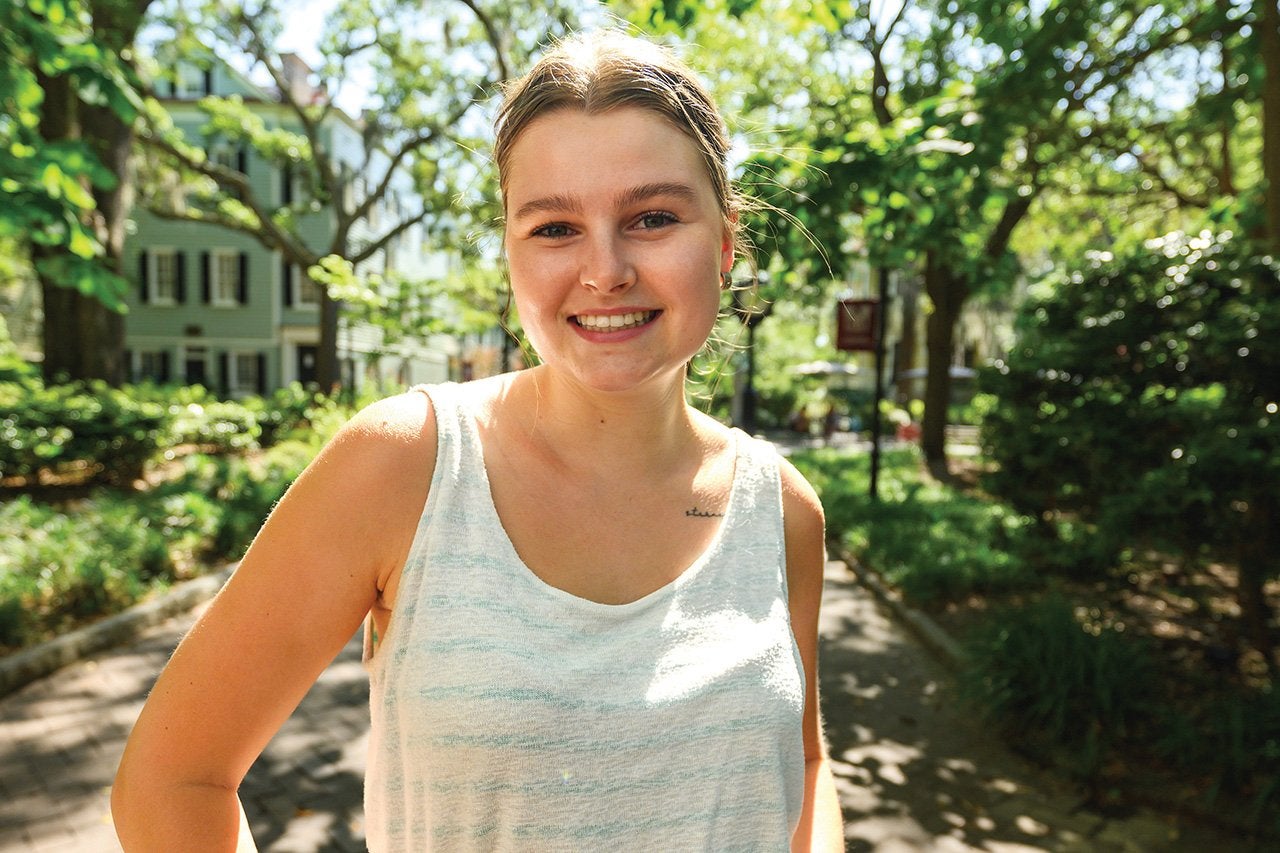Forced migration is not necessarily a topic your average college student would be drawn to, but Lea Neufeld is no ordinary college student. The rising senior is a triple major (political science, international studies and French) who was born in Mannheim, Germany. She was 3 when her family immigrated to Greenville, South Carolina, where her parents insisted she keep up with their native tongue by working through grammar workbooks every summer.
“I used to hate it as a kid, but now I’m thankful for it,” says Neufeld, whose family returned to Germany almost every summer. Her proficiency in the language led her to minor in German studies, which involved taking assistant professor Sarah Koellner’s Honors College course Borders, Art, and Migration: Voices from Europe. That’s where she first read Jewish-German philosopher Hannah Arendt’s 1943 essay “We Refugees,” which introduced Neufeld to the concept of forced migration in a way she hadn’t thought about before. Arendt’s writings about the disintegration of nation-states in Europe in the 1940s gave Neufeld a deeper context for the statelessness of refugees and asylum seekers at the U.S. southern border today.
“The prevalence of the subject really piqued my interest,” she says.
Last fall, Neufeld matched her interest with a remote internship at the Johannesburg Holocaust and Genocide Centre (JHGC) in South Africa, which examines the history of 20th century genocide, concentrating on the Holocaust and the 1994 Rwandan genocide. By studying connections between genocide and contemporary human rights issues, the JHGC hopes to prevent future atrocities. “It’s a good opportunity to work on something tangible and with actual actors in the field.”
Since January, Neufeld has worked with the JHGC team to support Congolese advocate and human rights defender Jean Bwasa in his latest project highlighting the statelessness that comes along with the turmoil in the Democratic Republic of the Congo (DRC) and how it creates a flow of people to South Africa. Part of Neufeld’s research includes collecting and transcribing oral histories from Congolese people and building them into a book.
“We’re listening to people who have escaped the Congo and hearing how that looked and felt,” says Neufeld. “South Africa doesn’t give them citizenship, so we’re also recording how it feels to be actively stateless. I know I can never really, truly understand what they went through, but it’s not just reading about it in a history book anymore – this really happened.”
One particular story that stands out is that of Bwasa’s wife, Nicole.
“I Zoomed with her and have heard her story from 10 years ago, and to see the person she is now is incredible. I can’t give any details on her journey, but she left the DRC for South Africa for safety. She’s such a strong and inspirational woman,” says Neufeld, who hopes to continue her forced migration studies in graduate school. “I absolutely get emotional transcribing these recollections.”




